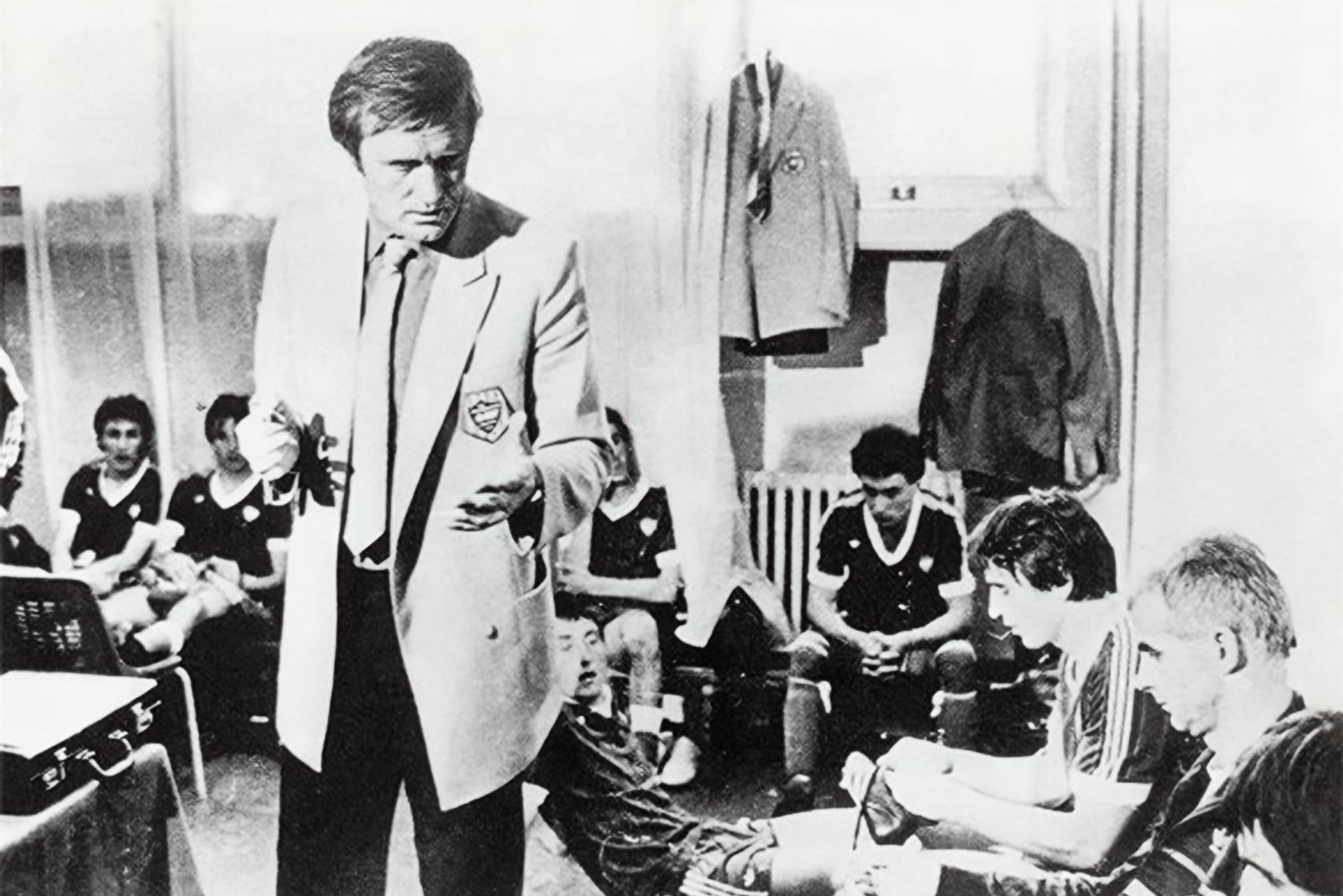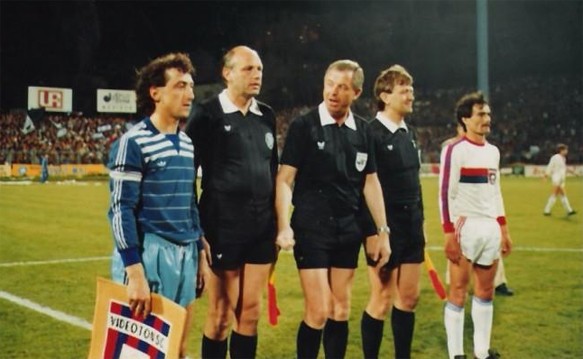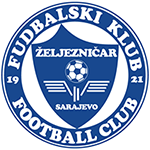As many times before, every new trouble in which Željezničar found itself was an incentive for even bigger steps. The stubbornness of this club has already shown itself by constantly rising above the most diverse obstacles, both the usual ones that all clubs encounter, as well as various subterfuges. This time it was the former. The sudden change of generations and the inability to adequately replace some excellent players led to a new relegation to the Second Federal League. However, it was accepted as the reality of the specific moment and as an incentive for a new step forward. The club’s structures were organized very quickly, and everything was prepared for an express return to the company of the best. After a long season, during which the fans, who in large numbers visited matches, showed how much their club means to them, Željezničar convincingly reached first place and returned to the first league competition.
Sulejman Rebac from Mostar led the team through the Second League. However, after returning to the First Federal League, the management decided to make a U-turn. It was a decision that would prove to be a complete success. Namely, a new coaching staff was appointed, headed by the famous former player of this club, Ivica Osim. Former players Mišo Smajlović, Boris Bračulj, and Velija Bećirspahić were appointed as his assistants. With this professional staff, Željezničar changed its approach to the game, and achieved solid results in the first seasons after the return. These results were solid because the team was still in the making and filled with players from their own youth academy. Many of them were members of the youth national teams, and many more were waiting for their chance in the future.
The 1980/1981 season will remain a special memory, although the championship results were not great. Željezničar reached the final of the cup competition for the first time in history, making it a significant achievement. The Yugoslavian Cup was an esteemed competition, and that season, two BiH teams, Željezničar and Velež, met in the finals. Thousands of fans came to Belgrade for the final match. In a magnificent environment and an excellent match, on May 24, 1981, the club from Mostar was more successful with a score of 3:2. After winning the championship title in 1972, this was the second most significant success of the “Blues” from Grbavica.

It was a harbinger of good times ahead for the team. In the following season, they secured fifth place in the championship table. However, the 1983/1984 season marked a significant step forward. In the officially fourth league of Europe at the time, Željezničar clinched third place, finishing only two points behind Red Star, who came first. This achievement secured the club a place in the UEFA Cup, for the first time in over ten years.
The UEFA Cup has traditionally been an extremely strong competition. In the 1984/1985 season, teams such as Real Madrid, Ajax, Atlético Madrid, Manchester United, Tottenham Hotspur, Nottingham Forest, Inter Milan, Fiorentina, PSV, Hamburg, Borussia Mönchengladbach, Werder Bremen, Cologne, Monaco, PSG, Real Betis, Anderlecht, Spartak Moscow, Sporting, Olympiakos, Auxerre, and others participated in the tournament. In this competition, Željezničar achieved the greatest European success of any Bosnian and Herzegovinian club. They defeated Bulgarian Sliven (0:1, 5:1), Swiss Sion (2:1, 1:1), Romanian Universitatea Craiova (0:2, 4:0), and Soviet Dinamo Minsk (2:0, 1:1) to qualify for the semi-finals. Other representatives of Yugoslavian football were eliminated in the earlier stages, and now the sympathies of the entire country were on Željezničar’s side. At that moment, the draw seemed to be in their favor. The giants Real Madrid and Inter Milan were paired against each other, while Željezničar had a double match with the tough Hungarian team Videoton. It is worth noting that Videoton had previously eliminated PSG, Partizan, and Manchester United from the competition, indicating that they were a strong team.

The first match was played in Székesfehérvár. The 3-1 defeat was not pleasant, but the good games on Grbavica until then gave hope for a place in the final. In a good atmosphere and with faith in passing, the rematch was welcomed. It started off great. Željezničar played well, and with the goal of Edin Bahtić (the best scorer of the UEFA Cup for that season), we took a 1-0 lead. The good game continued after that, and our players had several excellent scoring opportunities. When Ćurić scored a goal for the necessary 2-0 in the second half, the fans of Željeznicar already saw their team in the final. However, one carelessness on our left side in the last minutes of the game paid dearly. We conceded a goal, and the loudest noise in the history of the Grbavica stadium reigned in the stands. Disbelief and immense sadness marked the end of this, from today’s perspective, an unreal story. The great result remains memorable, as well as the fact that a great chance for the super final with Real Madrid was lost. Even the semi-final of a European Cup can be considered an incredible success of a BiH team today, and the chance for a spectacular result was lost.
The appearance in the UEFA Cup also had an impact on the domestic championship. Although the team had players of higher quality, it finished in seventh place that season, which was not sufficient. However, it is important to note that the team was composed of several skilled players including Dragan Škrba, Mirsad Baljić, Josip Čilić, Branislav Berjan, Refik Šabanadžović, Vlado Komšić, Mehmed Baždarević, Zoran Samardžija, Edin Ćurić, Edin Bahtić, Radmilo Mihajlović, Haris Škoro, Vlado Čapljić, Nikola Nikić, Milomir Odović, and others.










